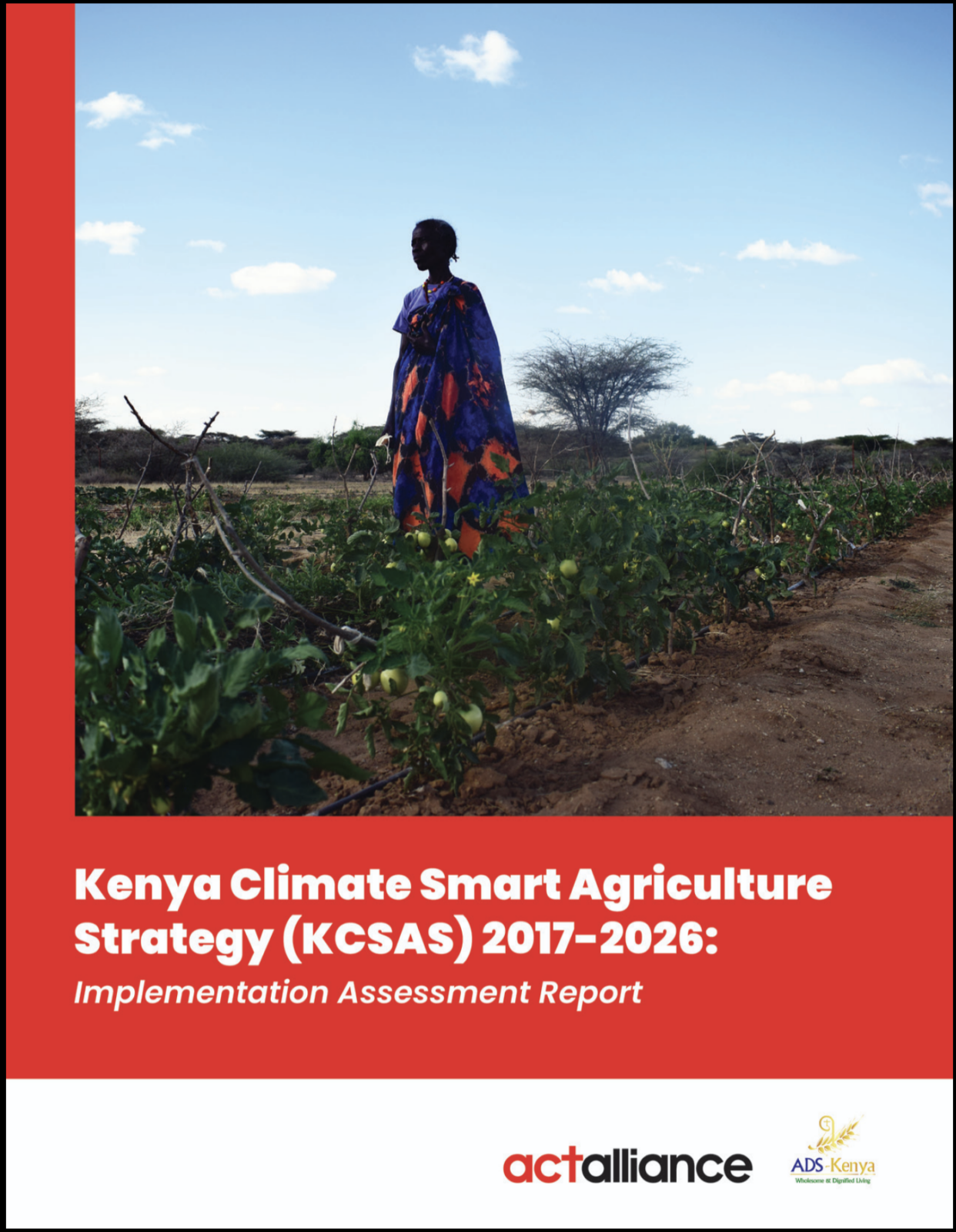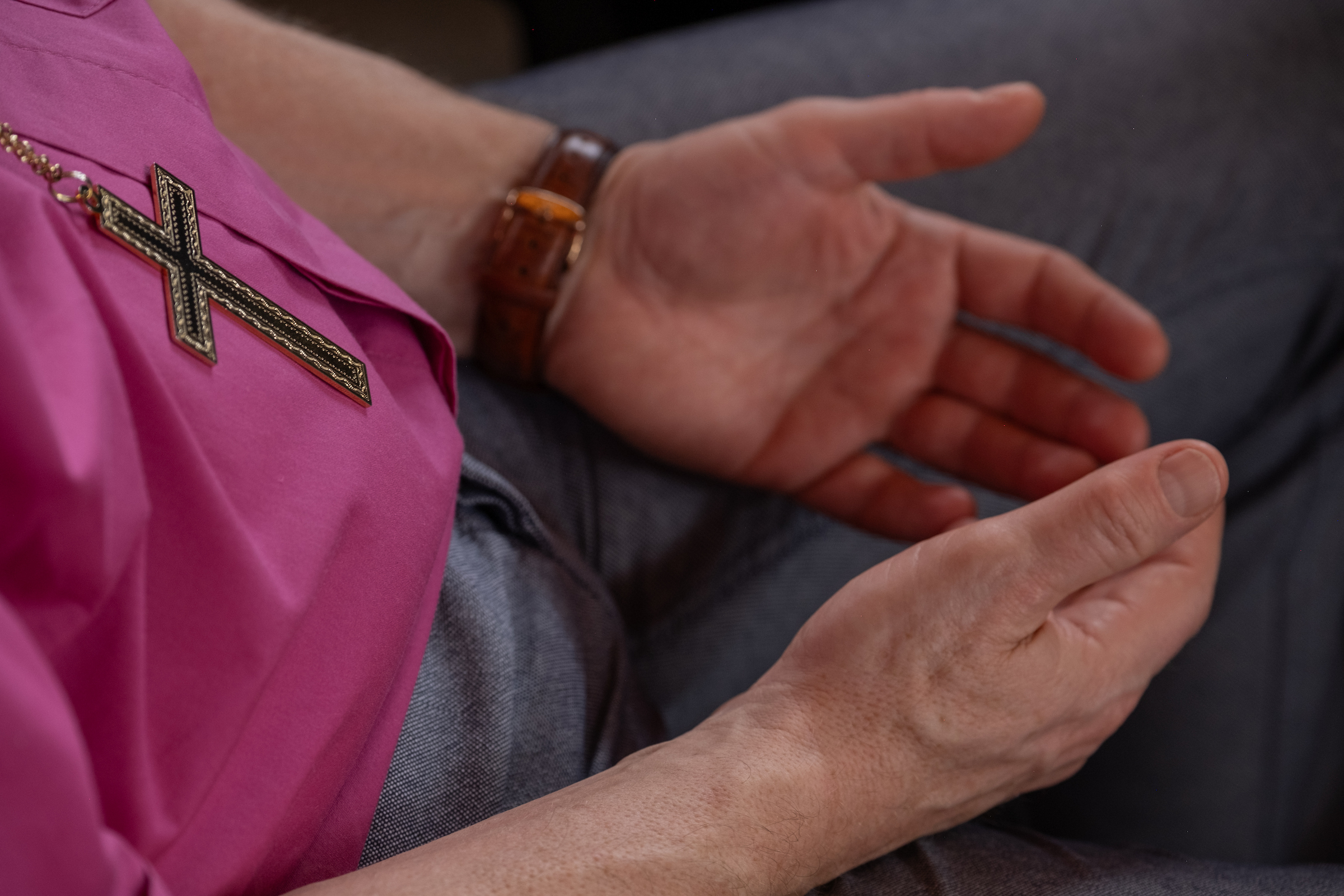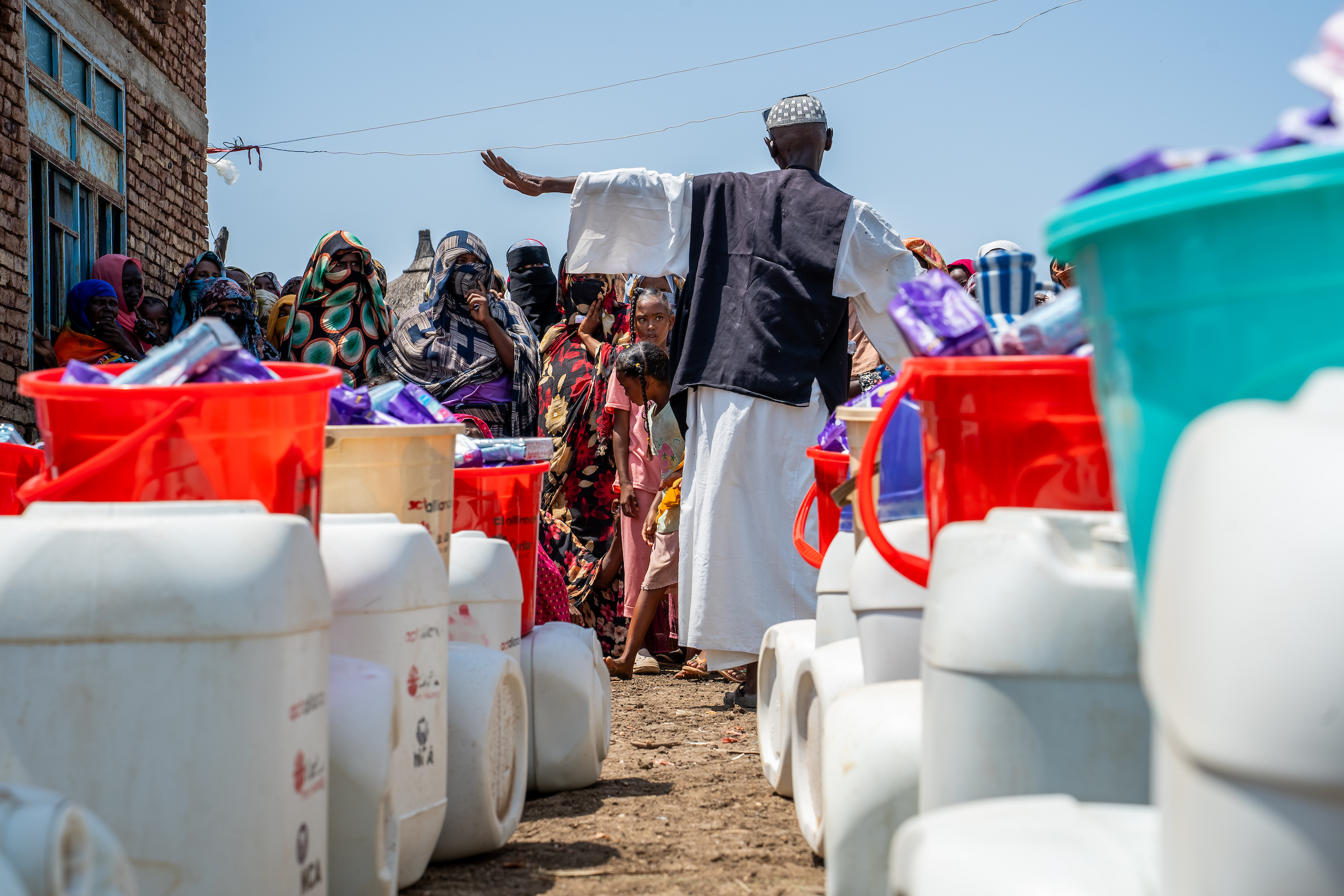As climate negotiators, politicians, activists, people of faith, academics, business and more arrive in Belem, the eyes of the world turn to COP30. The stakes are high this year in the face of dynamic geopolitics, extreme weather events, and increasing tensions and conflicts. 10 years after the Paris Agreement was signed, what will the world accomplish in Belem?
ACT Alliance, as a Christian organisation bringing a faith- and rights-based lens to its work and to its analysis of COP, welcomes the Brazilian presidency’s push for COP30 to be the “People’s COP” and in highlighting the ethical considerations of climate change and climate justice through the Global Ethical Stocktake.
Rudelmar Bueno de Faria, general secretary of ACT Alliance says: “The Paris Agreement is catalyzing action towards keeping to the 1.5°C temperature goal, advancing a world that is carbon neutral, and climate resilient development. While this is so, much remains to be done as science points to a potential 1.5°C warming guardrail compromise in a few years. COP 30 must be the moment of truth where faith actors lead an ethical and moral push for more ambition and accountability.”
ACT’s focus at COP30 will be on a range of topics, including finance, mitigation and NDCs, adaptation, loss and damage, gender and just transition.
COP 30 must be the moment of truth where faith actors lead an ethical and moral push for more ambition and accountability.Rudelmar Bueno de Faria general secretary, ACT Alliance
Finance
Adequate quality climate finance is critical to closing the ambition gap and turning climate commitments into real action on the ground. At COP30, countries must adopt a credible Baku-to-Belém Roadmap to reach the USD 1.3 trillion finance goal agreed at COP29. The Roadmap should speak to relevant actors and highlight relevant reforms to ensure climate finance is high quality and reaches the most vulnerable countries without exacerbating debt, and inequalities
COP30 must underscore the moral imperative and obligation of historic emitters to support vulnerable nations. And the type of finance matters deeply. Grants and concessional finance should form the backbone of climate finance to support vulnerable nations, especially for adaptation and loss and damage action.
Julius Mbatia, global climate justice programme manager with ACT Alliance, says: “Alternative and innovative financing does not replace the legal obligations of developed countries to provide finance to address the climate crisis in developing vulnerable nations. Private financing cannot just flow on its own nor can it replace the role of public finance and interventions. The responsibility of developed countries to provide international public finance must be delivered to bridge the financing gap and mobilize additional quality finance.”
Mitigation and NDCs
The climate crisis is accelerating and continues to hit the most vulnerable communities hardest, especially in regions where ACT Alliance members work. Africa, for example, contributes only 4% of global emissions yet faces some of the most severe climate impacts. Meanwhile, the world’s largest emitters, responsible for about 80% of global emissions, must make deep and rapid cuts.
Current national climate plans (NDCs) are not enough to keep the Paris Agreement goal of limiting global warming to 1.5°C within reach. According to the 2025 NDC Synthesis Report, countries’ latest pledges would reduce emissions by only 17% by 2035. This is far below the roughly 60% reduction needed to maintain a viable path to 1.5°C.
ACT Alliance will advocate for major emitting countries to treat their current NDC commitments as the baseline, not the ceiling, and to clearly outline how they will increase ambition in the next NDC cycle. Further, the alliance will advocate to remind parties that the implementation of NDCs as commitments cannot set us on the pathway below 1.5 degrees unless they are acted on.
Mattias Söderberg, Global Climate Lead at DanChurchAid, says: “The world is sleepwalking toward a dangerous future. We cannot solve the climate crisis by avoiding its cause. Fossil fuels must be part of the discussion if we are serious about protecting people and the planet.”
We cannot solve the climate crisis by avoiding its cause. Fossil fuels must be part of the discussion if we are serious about protecting people and the planet.Mattias Söderberg Global Climate Lead at DanChurchAid
Adaptation
For too long, adaptation efforts have been underfunded and overlooked. Nearly half the world’s population already lives in highly climate-vulnerable hotspots, yet progress on financing, planning, and implementation remains far behind.
At COP30, our priorities include boosting support for adaptation through the Baku to Belém Roadmap and ensuring the successful adoption of the Global Goal on Adaptation (GGA), one of the conference’s key deliverables. GGA indicators to enable transparent, measurable, and globally comparable tracking of adaptation efforts.
Means of Implementation (finance, technology transfer and capacity-building support) is a fundamental inclusion in GGA indicators. Adaptation progress must not be judged solely by national efforts but also by the adequacy of international cooperation and support provided to enable action. ACT Alliance believes that time is right to double down on adaptation support by setting a new and ambitious adaptation finance target beyond 2025
Data must inform action, not create reporting burdens for vulnerable countries. GGA indicators should fundamentally highlight what is already being implemented on the ground, identify where additional support is needed, and highlight gaps where action is insufficient. It should lead in increased action, not just mere reporting.
Loss and Damage
The new climate finance target agreed at COP29 did not include L&D as a subgoal. The COP30 Presidency is not prioritising L&D posing a serious risk to sideline it in future negotiations. The Fund for responding to Loss and Damage (FRLD), a UNFCCC fund, is operational but yet to disburse any funds. This is alarming.
The FRLD must be filled and bring justice to the frontline climate impacted people. Its resource mobilisation strategy, which was expected to be adopted by 2025 and delayed now, must be adopted with the objective of ‘escalating’ FRLD’s contribution to responding to loss and damage in the developing countries through contributions from a wide variety of resources of funding, including grants and concessional loans from public, private and innovative sources.
Grants should be prioritised as the primary financial instrument to capitalise and replenish the FRLD, ensuring it meets the scale and pace of needs in the Global South. The FRLD should focus on grant provision only during its start-up phase, with the first disbursements scheduled for 2025–2026 under the Barbados Implementation Mechanism.
Nushrat Chowdhury of Christian Aid says: ‘’It remains disappointing that the Fund for responding to Loss and Damage does not have sufficient funding, pledges are far below the estimated loss and damage needs in developing countries and even the full pledged money has not yet been paid in. Amidst this, the fund is forced to resource mobilize as developed countries push back on providing resources to the fund.’’
It remains disappointing that the Fund for responding to Loss and Damage does not have sufficient funding, pledges are far below the estimated loss and damage needs in developing countries and even the full pledged money has not yet been paid in.Nushrat Chowdhury climate justice policy advisor, Christian Aid
Gender
COP29 ended with a decision to extend the Lima Work Program on Gender for an additional ten years. In Bonn, negotiations started to work on the content of the new Gender Action Plan. These negotiations will continue in Belem with a view to adopt a new GAP by the end of the COP30. This new GAP must usher in a new phase in building a climate framework that treats gender equality not merely as a guiding principle, but as a fundamental prerequisite for inclusive, effective, equitable, and transformative climate action.
Elena Cedillo, program executive for climate justice with the Lutheran World Federation, says: ‘’COP30 must send a clear signal for a gender-just climate action, and to explicitly refer to and incorporate key GAP components in NDCs and NAPs, including to collect and use gender-disaggregated data and to use gender markers, and gender budgeting.”
Just transition
Building on the outcomes of the GST in 2023, COP30 must continue to emphasise the need for a fair and equitable phase-out of fossil fuels. Simply including fossil fuel language in the final text is not enough. What is needed is a commitment to justice in the energy transition, balancing responsibility and capability, and on fostering real economic transformation. The world’s largest emitters, primarily the richest countries, must lead by reducing emissions drastically by 2035, and achieving net-zero by 2050, and providing support to middle-income countries to follow soon after. Poorer nations should transition at a pace aligned with their capacities and national circumstances, receiving full financial, technical, and capacity-building support to decarbonize their economies and implement NDCs while ensuring access to clean energy and poverty eradication in their countries.
ACT Alliance members will advocate for elimination of fossil-fuels subsidies and fossil fuel phase-out pathways that go hand-in-hand with the Just transition principles. At COP30,The JTWP must champion people-oriented and rights-based transition pathways and Developed countries must commit to investing in and expanding energy access through decentralised renewable energy systems that create local jobs, empower women and youth, and deliver clean power to off-grid communities. Public finance should take the lead in driving this transition to prevent the accumulation of unsustainable debt, and these commitments must be firmly embedded within the Baku to Belém Roadmap.
COP30 must send a clear signal for a gender-just climate action, and to explicitly refer to and incorporate key GAP components in NDCs and NAPs, including to collect and use gender-disaggregated data and to use gender markers, and gender budgeting.Elena Cedillo program executive for climate justice, LWF
COP30 represents a key moment and opportunity for parties to take strong steps forward in implementing the Paris Agreement and limiting global temperature rise to 1.5°C, and doing so in ways that promote climate justice and show care for the most vulnerable people and nations.
Illari Aragon, co-chair of ACT Alliance’s climate justice reference group, says, “Despite the difficult geopolitical context, COP30 needs to deliver roadmaps to end our dependency on fossil fuels in a fair and planned way, to end deforestation, and – very importantly – to scale up the finance necessary for the energy transition and for vulnerable countries to adapt to and deal with the consequences of climate change they already suffer.
“COP30 must also acknowledge the NDC synthesis report and produce a concerted response to address the ambition gap, clearly outlining what needs to happen next,” Aragon continues. “We need an outcome from COP30 that conveys urgency and pushes for concrete steps to close the yawning gap between what has been pledged and what is needed.”
Read the Spanish Version here.
Read the Portuguese Version here.
Media contact:
Keziah Kariuki – keziah.kariuki@actalliance.org
Simon Chambers – simon.chambers@actalliance.org




